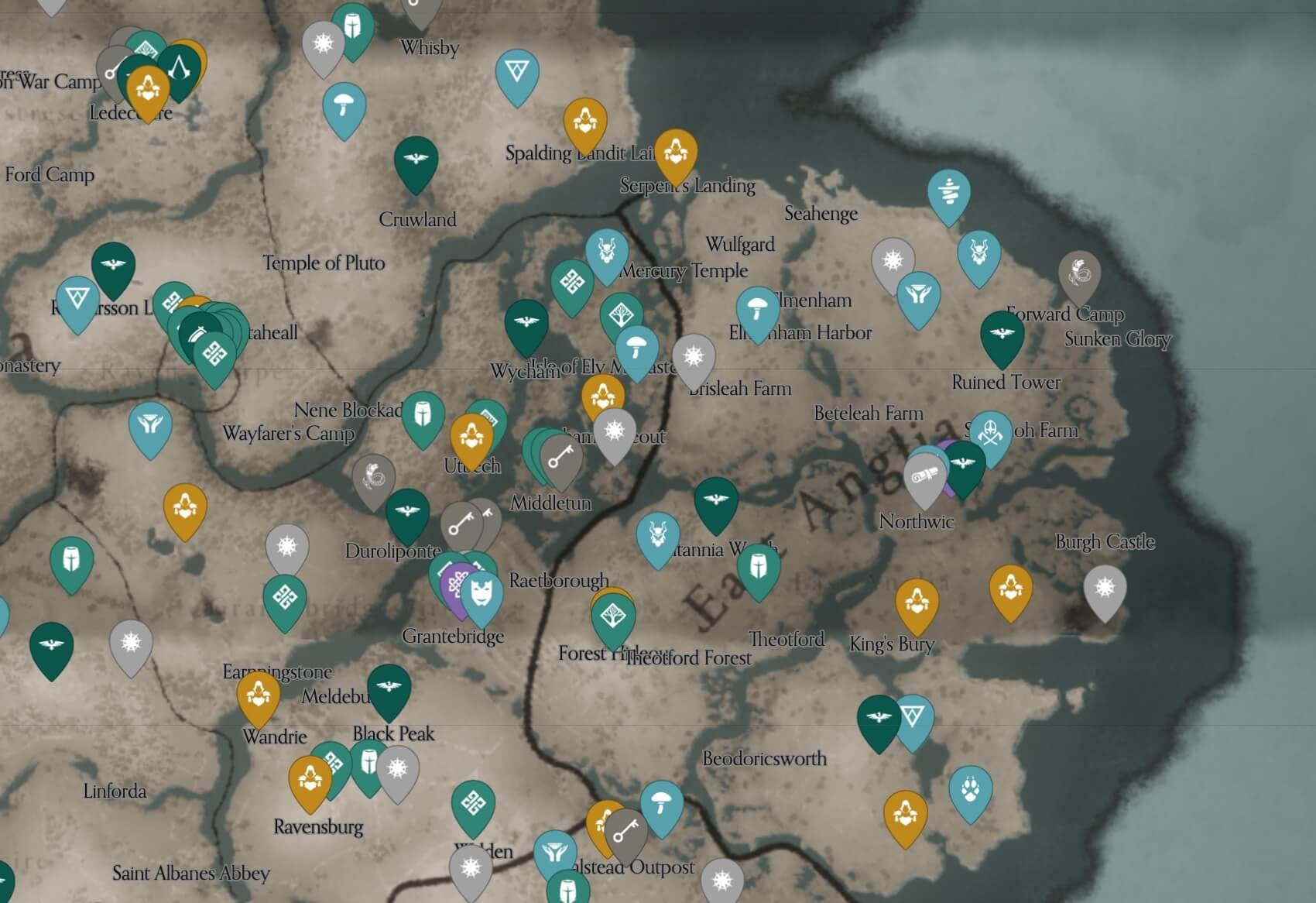The Oxymoronic Open World In Games
AKA: how Assassin's Creed Valhalla wildly expansive setting made me feel what I wasn't intended to in 8th century Europe.

It’s pretty rare that I let a game that I actually start go unfinished for a while. Generally, if I buy a game these days, it’s because my intention is to get value out of my purchase, which means I’ll usually start it right after I buy it. After all, you don’t really get value when you buy a game, let it sit around, and have it occasionally judge you from its uninstalled place on your Steam Library (my unstarted games backlog is another story - but I digress).
Ubisoft’s Assassin’s Creed Valhalla was a different story for me, however. I bought it during the holidays in 2020, promptly played it for a couple months or so, and then….I just stopped.
There were probably a few contributing factors - the COVID-19 pandemic, for one, and all of the uncertainty and difficult feelings that went into it. But at its core, as I picked up the game again in 2023 in anticipation of the latest title, Assassin’s Creed Mirage, coming out, the reason became apparent to me as I replayed up to my 2021 save points to reacquaint myself.
The open world was just a bit too open for me.
That’s probably a bit unusual for me, a long-time Assassin’s Creed aficionado, to say - especially given the fact that I’m one of those people who stuck with the series as it changed from stealthy quiet assassination in small environments to the multi-country sprawl that covers Valhalla. You’d think someone who was okay traipsing around in ancient Egypt randomly in the desert would be fine with a game with the scope of Anglo-Saxon England and beyond.
Turns out that I actually have limits, an ironic thing to say in a series whose main driver is to have the freedom to have none.

Look, I’ll be honest with you all. Even though I’ve spent a couple of minutes writing this lead-up to my main point about why I stopped playing, the simpler explanation is…I got lazy.
Games like Assassin’s Creed Valhalla don’t want you to get lazy. They want you to experience the full breadth of what the open world they set themselves in has to offer. They want to give you something to explore, something that makes you feel like you’re really in this big world setting, complete with incidental occurrences, exploration stumblings, and of course, the main story arc. They make that experience as huge and as open as possible so you can feel that sense of pseudo-realism. And it’s not like there isn’t an audience that is hungry for experiences like that. “But muh immersion” is a meme for a reason, after all.
Maybe it’s the fact that I’ve spent 10+ years working in the games industry, watching the sausage get made in the sausage factory, but my mind can’t make that imagination-fueled leap into believing in the open world game idea. I know that no matter how large the world seems to be, or how many objectives there are, or how many times I can be charmed by the voiceover of villagers going about their day in BC-era England, that it’s just a game. And a game has bounds, limits, parameters. As such, to me, it’s an “open” world in air quotes and it always will be.

So it was that I had spent the first couple months playing Assassin’s Creed Valhalla only to realize that not only was I merely 45% completed but that there were 7, 8, 9 or so more territories to complete and explore. I realized that I only really put up with Assassin’s Creed Odyssey, the game before this, because I’d made the mistake of studying ancient Greek as a foreign language in high school and got way too familiar with the culture. And I also realized that if I kept going, trying to experience anything and everything with Valhalla’s multiple story arcs, that I’d probably start to think the game was a chore - and having a game feel like washing and drying dishes every day is a definite red flag.
My play sessions became less exploration and more efficiency - do the main objectives, only bother with world markers I happened upon in doing so, and skip everything else. The once-expansive open world in Valhalla contracted, and it became, for me a linear story game, not unlike the JRPG philosophy which remains, to this day, one of my favorite game genres. That seemed great for me, but not great for the game’s intended offered experience of anything and everything as a gravelly-voiced VIking in ancient England. Eventually, the scope of even running around finishing the latest episodic arc in the main story got to be intimidating, and I stopped playing, promising to pick it back up again “later”. Later, it turns out, came to be three years later.
Since the upcoming Assassin’s Creed Mirage is a “return to roots”, I have a feeling that the developers at Ubisoft realized that what I was feeling was something that others might have been as well. For all the fun that open worlds, huge exploration sessions, and YOLO combat have brought to the franchise, its main draw used to be self-contained, appropriately sized sandboxes of a single city with clear direction. Its environments consisted of an urban-based setting where you actually had to make choices about how and when to act, instead of large worlds where those choices seemed way too numerous.
Given that, it’s probably good timing that I decided to head back to the world of Assassin’s Creed Valhalla for one last go at the developers’ open world philosophy. Whether or not they pivot back to it after Mirage is anyone’s guess - but for people like me, Mirage will be a welcome return to what initially drew me to the series and, I think, a more honest accounting of just how open the world of the game is supposed to be.
Until then, I’ve got 400+ more points of interest to keep me busy.




